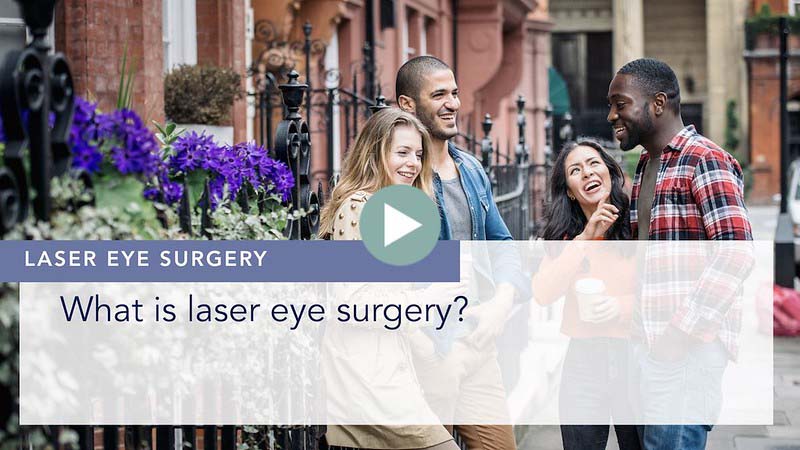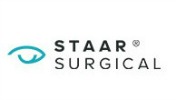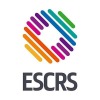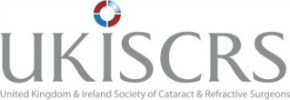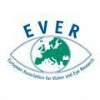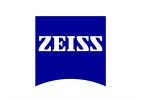For FAQs regarding Coronavirus please click here
Who can LASIK help?
Can you see yourself below?
YOU’RE 20 TO 39

You’re frustrated with blurred or double vision, haziness, glare, halos around bright lights, squinting, headaches, or eye strain. You find glasses a hassle or worry about contact lens dangers. If that describes you, I can help you see better without the need for glasses and contact lenses.
YOU’RE 40 TO 49

You have been frustrated with your glasses or contact lenses all your life. Or, you have just begun to become annoyed with your new need for reading glasses. If that’s you, I can help you see clearly without either.
Live a richer life without glasses or contact lenses
LASIK is an ideal solution if you want a safe and effective treatment for short-sightedness, long-sightedness or astigmatism
GAIN CRYSTAL CLEAR VISION AT BOTH DISTANCE AND NEAR
Imagine seeing the world without the need for glasses or contact lenses. You’ll have a freedom that some patients call “life-changing”.
FEEL MORE CONFIDENCE AND CONVENIENCE
Most patients say they wish they’d done it sooner. You may feel more confident and will certainly experience more convenience.
IMAGINE AN AVERAGE DAY WITHOUT GLASSES AND CONTACT LENSES
Awaken ready to face the world free from spectacles. Take a shower without the blurriness. Work and exercise without glasses or the dryness of contact lenses. Avoid the everyday chance of contact lens infection. Fall asleep, without worrying about leaving your lenses in.
BE FREE OF THE BARRIER BETWEEN YOU AND OTHERS
Whether we like it or not, other people rate people based on appearances. Glasses can be a appendage that needlessly divides us. Ditch their limiting nature and live glasses-free.
DON’T ACCEPT LIMITATIONS
Glasses have been the tired solution for vision problems since the 1200s. Vision correction options today have evolved significantly, yet many people are confused by the jargon or unclear explanations about what you can do. Leave the past behind and allow me to guide you on the journey towards a life free from the hassle of spectacles and contacts.
Affiliations and memberships
I am proud to be associated with these organisations as a member or consultant
Supplementary information about LASIK eye surgery
In my expert hands, you certainly don’t need to know all of the information I’ve included in the toggles below. If you’d like to know how it all works, however, open them and learn more.
Take the first step
Find out if your eyes are suitable for vision correction
Book a free screening now or get us to give you a call back to answer questions
How it works
Enjoy a life free from glasses and contact lenses in 3 easy steps
STEP 1 – BOOK
STEP 2 – MEET
STEP 3 – ENJOY

TALK TO US
Book an appointment or give us a call on 020 3808 7758 and we’ll help guide you towards a free screening.
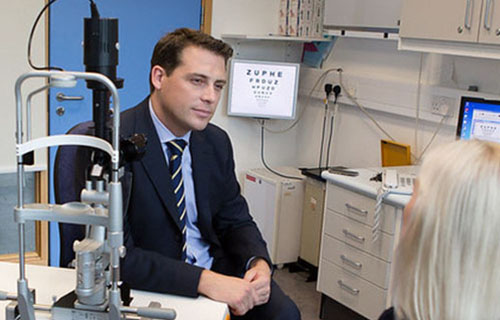
MEET YOUR SURGEON
I’ll see you before treatment to ensure you’re a good candidate and treat you at one of my Harley Street London facilities.

ENJOY A RICHER LIFE
I’ll supervise your aftercare as you begin to experience a life free of glasses and contact lenses.
Even more information about the LASIK eye surgery
I frequently write articles and publish videos to answer people’s most common questions and keep them updated on the latest developments in vision correction. Find out more below…
How long does laser eye surgery last?
If you're thinking about correcting your vision, you may be wondering ''how long does laser eye surgery last?''. Learn more about what to expect, here...
SMILE v LASIK v PRK – What Are the Different Types ?
When comparing SMILE, LASIK, and PRK, it can be easy to get overwhelmed. Here are the key differences between these types of laser eye surgery.
Can I get laser eye surgery?
If you dislike your glasses and contact lenses, you might be wondering "can I get laser eye surgery?" To find out whether you may qualify for this life-changing procedure, read on.
A clear look into the types of laser eye surgery in London
All laser eye surgery has the same general idea - a surgeon uses a laser to reshape your cornea, improving your vision. There are multiple ways a surgeon can do this, though. You need to know if you’re getting the right type of surgery. Take a look at these top types of laser eye surgery in London.
You don’t choose eye surgery from a menu
Some patients worry they will have to do a whole heap of work to choose the best eye surgery. Not on my watch. Below are some alternatives that you might have heard about, however, I believe it is my duty to choose which eye treatment is best for you after conducting a thorough examination
ReLEx® SMILE
SMILE works similarly to LASIK but is a less-invasive, keyhole treatment. If you’re suitable for LASIK and SMILE, I’ll most likely recommend the latter because it has faster visual recovery and less incidence of post-operative dry eye.
PRESBYOND ®
PRESBYOND, also known as “laser blended vision” is a laser vision correction treatment aimed at treating presbyopia and other refractive errors. If you’re unsuitable for LASIK, then you’re also unlikely suitable for PRESBYOND.
LASEK
LASEK is a type of laser eye surgery, often used as an alternative treatment for those who are not suitable for LASIK eye surgery.
Implantable Contact lenses (ICL)
If you are one of the rare patients for whom laser eye surgery is not suitable, ICL lens implants offer a safe and extremely accurate option to free you from needing glasses.
This option is particularly suitable for you if the shape/thickness of cornea makes you ineligible for laser eye surgery; or, if you are so short- or long-sighted that you are out of the treatable prescription range with laser eye surgery.
Lens Replacement (RLE)
Lens replacement or Refractive Lens Exchange (RLE) is an advanced form of vision correction surgery which we use to treat patients over 50 years of age who need glasses for both distance and for reading.
Refractive cataract surgery
If you have a cataract, removing that cataract and replacing your natural lens with a multifocal artificial lens will negate the need to have an LASIK.
Complex cataract surgery
If you have a cataract and another complicating eye condition, removing that cataract and replacing your natural lens with an artificial lens will negate the need to have an LASIK.
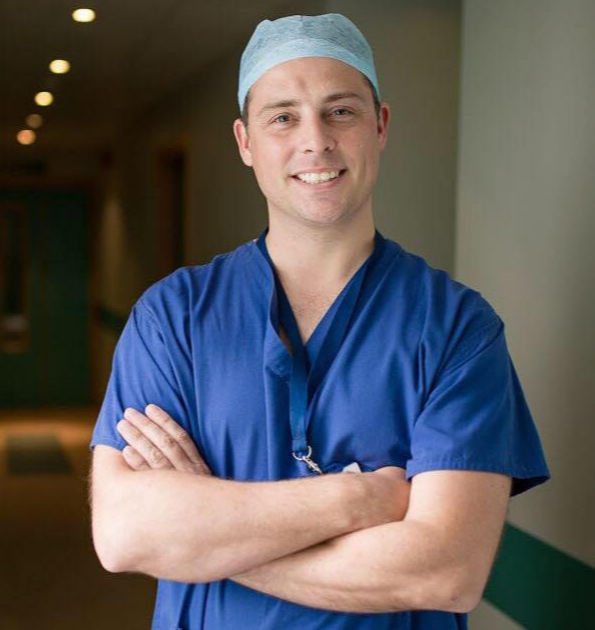
About the author
Mr Alex J. Shortt | Consultant Ophthalmic Surgeon
MB BCh MSc PhD FRCOphth PGDipCatRef
I’m Alex Shortt, a highly trained academic researcher and Consultant Ophthalmic Surgeon based in London’s famous Harley Street medical district. I trained and worked as a consultant for 14 years at London’s Moorfields Eye Hospital. I specialise in advanced technologies for correcting vision, including cataract surgery, implantable contact lenses and laser vision correction.


